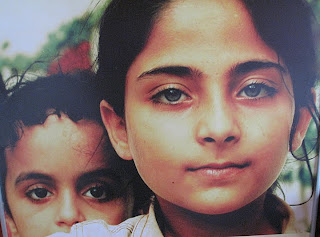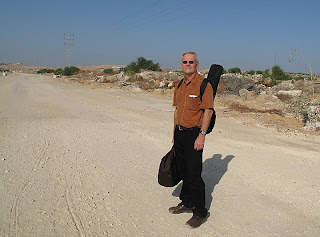
I love to camp. I associate it with mountain meadows, alpine flowers, a warm fire, a cold beer. And the occasional bear.
So when I heard I would be going to a Palestinian camp in Lebanon, I had a really hard time wrapping my brain around it.
I imagined there being tents in a desert, far from the urban landscape. Hot, dusty, maybe a fence around it just to give it a sense of place.
This was my second trip to the Middle East, to work with young adult leaders who are part of the Mercy Corps Global Citizen Corps program. Meeting these young people throughout the Middle East continues to be a daily myth-busting experience. This month, I found out what it means to be a Palestinian camper.
The first thing you notice as you come upon the camp is that it is anything but a camp. It sits just on the outskirts of Tripoli, one of the largest cities in Lebanon, and looks like a poor urban neighborhood, of several thousand people. And yea, there is a fence, but it’s impenetrable, and you need a passport and a pre-approved Visa to get in. The guards are heavily armed, and I am pretty sure it’s not about the bears.
We got the OK to enter, the five of us in a Mercy Corps vehicle, and drove several hundred yards inside where we stopped and got out. The roads are dusty, the “tents’ are concrete, bland-looking structures. It feels solemn, sad, and temporary. But it has been here for half a century. In addition to meeting with a local youth group that Mercy Corps works with, and hoping to get involved in the youth leadership program where youth discuss issues on-line and take action together, we visited a local after-school youth center run by Palestinian leaders from the camp.

We walked in as children were singing and dancing, and playing a game much like musical chairs. The walls were filled with colorful youth-produced art, along with a shocking black and white photo, showing 2 young people from Hiroshima at gunpoint, hands held high in the air. Startled to see such a photo here, I asked the director what it was about. He told me that it is part of the trainings they do to let youth know that no matter how difficult times can get, people are resilient and can find a way to improve their lives. “Hope is what we most need, and seeing examples of others who have overcome tough times is very important for us”.
This continued to be the most consistent and myth-busting discovery I uncovered in my work with young people here. And it was further reinforced reading “Children of Jihad” on my plane ride home. It is written by Jared Cohen, a young Jewish American who recently spent two years traveling in these same Middle East countries talking to young people to find out how they see themselves and the world. He too, talked with youth in Palestinian camps, Hezbollah youth groups, and on university campuses. He concludes this riveting read with
“I can say from my own experience, living and traveling in this volatile part of the world, that reaching this under-thirty generation is our best hope for greater communication-but only if we engage with them on their own terms. Amid the despair of war, poverty, and oppression, they are the ones who respond to creativity. Could it be that they will also find creative solutions for peace someday?....Like us, young people in the Middle East all desire better education; they all have a fascination with innovative uses of technology; they all get bored and crave adventure and entertainment; they all seek interaction and global connectivity; and more than anything, they all want to feel as though they belong, have a purpose in this world, and can have a better life. Young people in the Middle East are reachable-and they could be waiting to hear from us.”


















